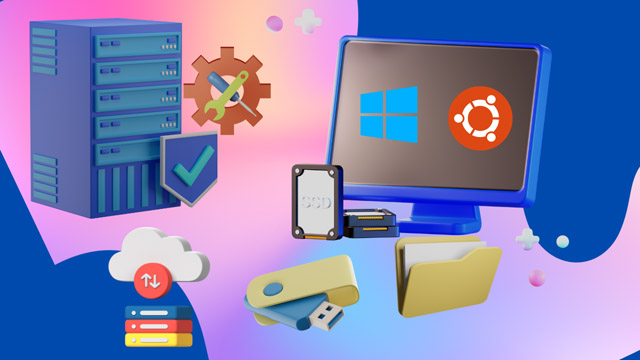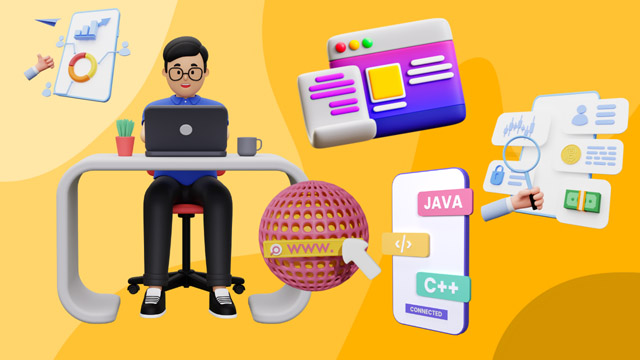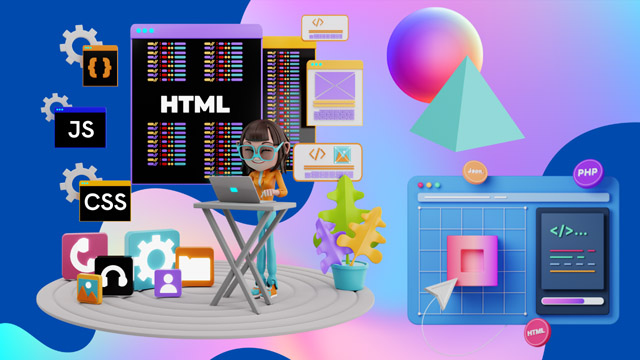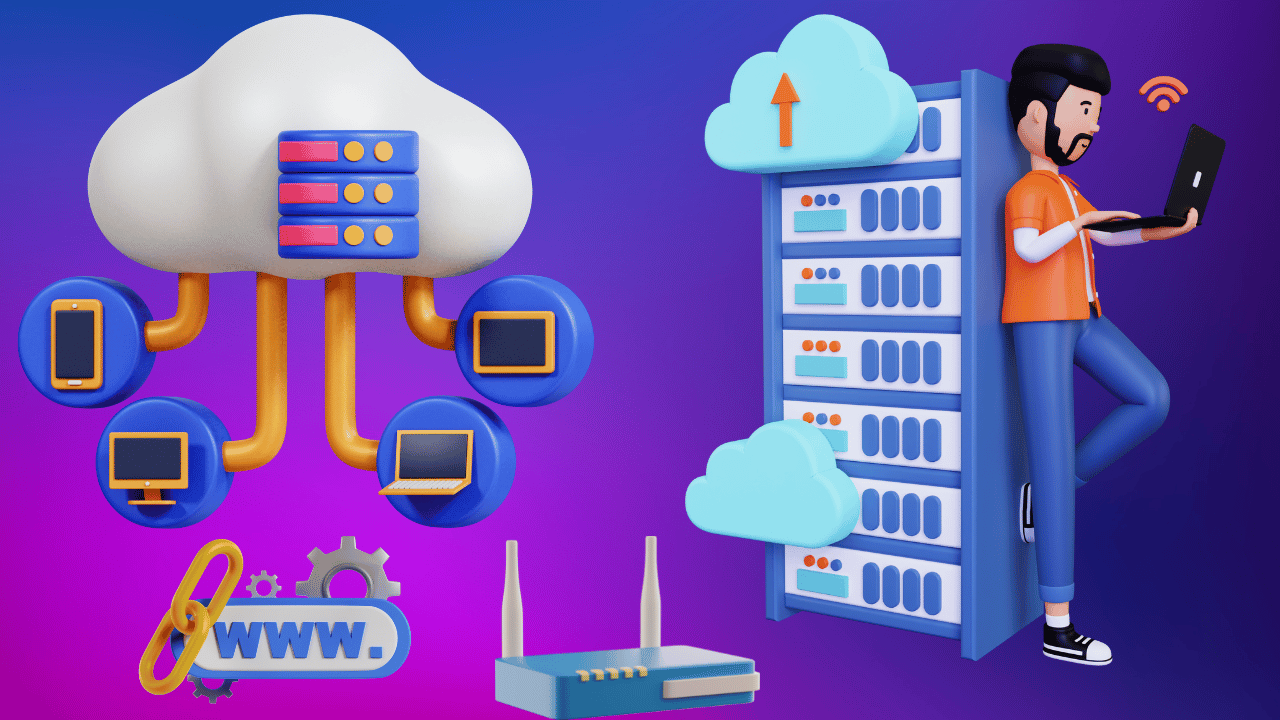- IT Students / Individuals studying computer science, IT, or related fields who want practical knowledge in OS installation, configuration, and virtualization
- Technical Support Professionals looking to enhance their skills in managing users, file systems, and backups for Windows and Linux environments
- Those responsible for managing, maintaining, and troubleshooting operating systems in corporate or educational environments
- Individuals aiming to get certified in areas like CompTIA, Microsoft Certified Solutions Associate (MCSA), or Linux certifications
- Small Business Owners managing their own IT infrastructure who need to understand operating system setup and maintenance
- Anyone interested in learning the fundamentals of operating systems, virtualization, and system management

KLiC Desktop Support
Desktop Support Technician is the one who:
- Configures, maintains the operating systems on desktops and laptops
- He/She can also migrate or upgrade the existing operating systems on desktops
- Installation and configuration of operating systems on bulk PCs using system imaging tools
Who Should Join
What you'll learn ?
A desktop support technician can work with companies/enterprises having an IT infrastructure including desktops and laptops or the companies who are providing operating system sales and support.
The career opportunities for Desktop Support Technician are:
- Companies/enterprises having an IT infrastructure
- Companies who are providing operating system sales and support
Certification
- KLiC courses are recognised by Yashwantrao Chavan Maharashtra Open University (YCMOU).
- MKCL provides certificate to the KLiC learner after his/her successful course completion.
- Yashwantrao Chavan Maharashtra Open University (YCMOU) provides mark sheet to successfully passed KLiC learners (Jurisdiction: Maharashtra).
Academic Approach
The academic approach of the courses focuses on the “work-centric” education i.e. begin with work (and not from a book!), derive knowledge from work and apply that knowledge to make the work more wholesome, useful and delightful. The ultimate objective is to empower the Learner to engage in socially useful and productive work. It aims at leading the learner to his/her rewarding career as an employee or entrepreneur as well as development of the community to which s/he belongs. Learning methodology:
- Step -1: Learners are given an overview of the course and its connection to life and work.
- Step -2: Learners are exposed to the specific tool(s) used in the course through the various real-life applications of the tool(s).
- Step -3: Learners are acquainted with the careers and the hierarchy of roles they can perform at workplaces after attaining increasing levels of mastery over the tool(s).
- Step -4: Learners are acquainted with the architecture of the tool or tool map so as to appreciate various parts of the tool, their functions, utility and inter-relations.
- Step -5: Learners are exposed to simple application development methodology by using the tool at the beginner’s level.
- Step -6: Learners perform the differential skills related to the use of the tool to improve the given ready-made industry-standard outputs.
- Step -7: Learners are engaged in appreciation of real-life case studies developed by the experts.
- Step -8: Learners are encouraged to proceed from appreciation to imitation of the experts.
- Step -9: After the imitation experience, they are required to improve the expert’s outputs so that they proceed from mere imitation to emulation.
- Step-10: Emulation is taken a level further from working with differential skills towards the visualization and creation of a complete output according to the requirements provided. (Long Assignments)
- Step-11: Understanding the requirements, communicating one’s own thoughts and presenting are important skills required in facing an interview for securing a work order/job. For instilling these skills, learners are presented with various subject-specific technical as well as HR-oriented questions and encouraged to answer them.
- Step-12: Finally, they develop the integral skills involving optimal methods and best practices to produce useful outputs right from scratch, publish them in their ePortfolio and thereby proceed from emulation to self-expression, from self-expression to self-confidence and from self-confidence to self-reliance and self-esteem!
Syllabus
- Overview of Operating system
- Types of Operating Systems
- Overview of Windows 8 Operating system
- Overview of Windows 10 Operating system
- Installing Windows 7 Operating system
- Installing Ubuntu on a PC
- Installing Windows server 2008 R2
- Creating Windows 10 Bootable Pen drive
- Installing Windows 10 Operating system
- Virtualization
- Creating Virtual Operating System Environment
- Creating Windows 7 Virtual Operating System
- Creating Ubuntu Virtual Operating System
- Configuring Virtual Operating System Environment
- Configuring Windows 7 Virtual Machine
- Using electa Screen Recorder and Format Factory
- Configuring Ubuntu Virtual Machine
- Creating ISO File from a Data CD or DVD
- Users in Linux
- Users in Windows
- Creating Users and Groups in Linux
- Creating Users and groups in Windows
- Managing Users and Groups in OS
- File System in Linux
- File System in Windows
- Assigning File Permissions in Linux
- Combining Shared Folder and NTFS Permissions in Windows
- Files and Folders Permissions in Windows
- File System in OS
- Partitioning a Hard Disk
- Managing Devices and Drivers in an OS
- Configuring backups in Windows Operating System
- Capturing Disk Image -Backup
- Capturing Disk Image -Restore
- Configuring Backups in Windows Operating System
- Configuring Backups
- Configuring Regional Language Settings
- Configuring Remote Desktop Settings
- Enabling Regional language settings
- Installing Google Input Tool for Hindi Typing
- Enabling Remote Desktop Settings
- Configuring Disk Analyzing tool
- Configuring Performance Tuning Tool for a PC
- Hardware Monitoring Tools for Operating Systems
- Migrating to Windows7
- Performance settings in Windows7
- Problem steps recorder
- Remote Assistance
- Securing Browser in Windows7
- Updating Windows7
Skills: Installing Windows 7 OS, Installing Ubuntu on a PC, Installing Windows server 2008 R2, Creating Virtual OS Environment, Creating Windows 7 Virtual Operating System, Managing Devices and Drivers in an OS, Configuring backups in Windows 7, Capturing Disk Image - Backup, Capturing Disk Image -Restore, Configuring Regional Language Settings
Tools: Operating system installation utilities, Virtual Operating systems, Hard disk analyzing tools, Remote desktop softwares, Disk partitioning tools, Windows users and file management, Regional language typing tools
Virtual Operating systems
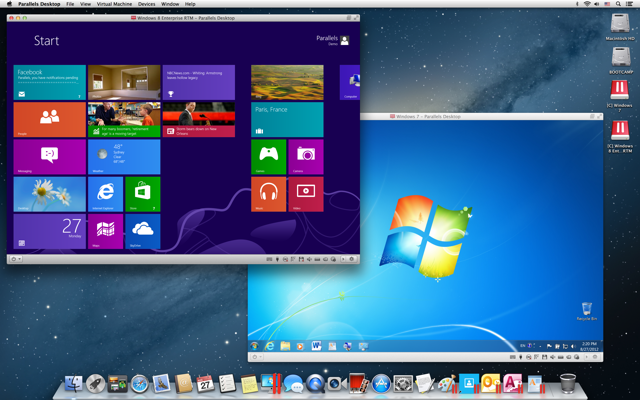
Evaluation Pattern
Evaluation Pattern of KLiC Courses consists of 4 Sections as per below table:
| Section No. | Section Name | Total Marks | Minimum Passing Marks |
|---|---|---|---|
| 1 | Learning Progression | 25 | 10 |
| 2 | Internal Assessment | 25 | 10 |
| 3 | Final Online Examination | 50 | 20 |
| Total | 100 | 40 | |
| 4 | SUPWs (Socially Useful and Productive Work in form of Assignments) | 5 Assignments | 2 Assignments to be Completed & Uploaded |
YCMOU Mark Sheet
Printed Mark Sheet will be issued by YCMOU on successful completion of Section 1, Section 2 and Section 3 and will be delivered to the learner by MKCL.
YCMOU Mark Sheet will be available only for Maharashtra jurisdiction learners.
MKCL's KLiC Certificate
The certificate will be provided to the learner who will satisfy the below criteria:
- Learners who have successfully completed above mentioned 3 Sections i.e. Section 1, Section 2 and Section 3
- Additionally, learner should have completed Section 4 (i.e. Section 4 will comprise of SUPWs i.e. Socially Useful and Productive Work in form of Assignments)
- Learner has to complete and upload minimum 2 out of 5 Assignments
KLiC Courses Fee Structure from 01 July, 2025
KLiC 120 hour course fee applicable from 01 July, 2025 all over Maharashtra
| KLiC Course Duration | MFO: MKCL Share (Including 18% GST) |
ALC Share (Service Charges to be collected by ALC*) |
MKCL Certificate | YCMOU Marksheet |
|---|---|---|---|---|
| 120 hours (Without YCMOU Marksheet) | Rs. 1,000/- | Rs. 5,000/- | Available | Not Available |
| 120 hours (With YCMOU Marksheet) | Rs. 1,118/- | Rs. 5,000/- | Available | Available |
* ALCs can collect additional 18% GST from Learner on ALC Share
* Above mentioned fee is applicable for all Modes of KLiC Courses offered at Authorised Learning Center (ALC) and at Satellite Center
* Total fee is including of Course fees, Examination fees and Certification fees
* MKCL reserves the right to modify the Fees of Courses during the year without any prior notice and MKCL shall not be liable to anyone for any such modification/s
KLiC Courses Fee Structure upto 30 June, 2025
From 01 January 2025 onwards, the fees for all KLiC courses in ALCs of Mumbai Metropolitan Regional Development Authority (MMRDA), Pune Metropolitan Regional Development Authority (PMRDA) and Rest of Maharashtra will be applicable as shown in the table below:
KLiC Courses of 120 Hours:
| Mode | Total Fee (Rupees) |
Single Installment (Rupees) |
Two Installments (Rupees) |
| Single Installment | 6000/- | 6000/- | N/A |
| Two Installments | 6200/- | 3100/- | 3100/- |
Total fee is including of Course fees, Examination fees and Certification fees
* Above mentioned fee is applicable for all Modes of KLiC Courses offered at Authorised Learning Center (ALC) and at Satellite Center
* Total fee is including of Course fees, Examination fees and Certification fees
* MKCL reserves the right to modify the Fees of Courses during the year without any prior notice and MKCL shall not be liable to anyone for any such modification/s
